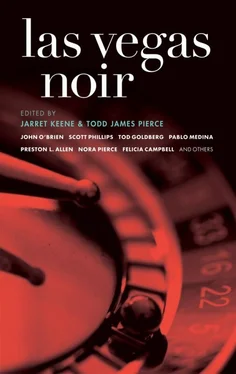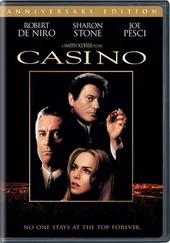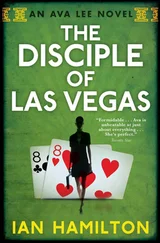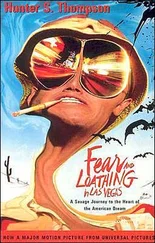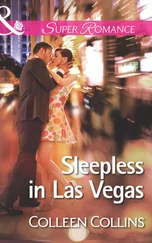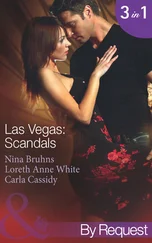Part III
Tales From the Outskirts
Atomic City
by Nora Pierce
Test Site
The bus is plugging across the sterile moonscape, rattling on the pockmarked desert road. From the last row of bench seats, Marcus reads aloud from his lesson plans: “Operation Doorstep evaluated the effects of a nuclear explosion on a typical American family. An entire town was constructed for the test, complete with myriad domestic structures, stocked refrigerators, bridges, and automobiles.” He looks toward the front of the bus, past the bobbleheads of tourists from somewhere in the Northeast, past five girls with razored pink hair, past an extremely old couple in matching track suits, and finally catches the response from his own students: iPod cords worm down their necks, heads roll in sleep: a silent consensus of aggressive boredom. The only lively one is Marcus’s class clown, Stanley, who is trying to flirt with the girls from Coalition Pink, activists on the tour to witness for the peace movement. They’re ignoring him, all but one who lectures him in a Socialist jargon. Do you know how many civilian casualties were estimated in Hiroshima? Do you know how many cancer cases were settled in relation to this site? We demand justice and compassion. Do you want to take some literature back to your school? Stanley finally turns around in his seat and huffs, “Damn Pinkertons.” A little snort of surprise escapes Marcus. Stanley knows about Pinkertons?
Seven hours into the eight-hour tour, sixty miles from the next drab stop. The last stop was so boring that a few of Marcus’s students didn’t even bother to get off the bus. They are indifferent to the sight of the gutted desert, permanently gouged and bloated, though they’ve spent their whole lives downwind of the place. Every one of them has some cousin, some old aunt somewhere on a nuked dead-end street.
To tune out, Marcus takes off his glasses. He’s severely near-sighted, so the life around him blurs and his world shrinks to the small space of the pages on his lap. The photograph on his Henderson Junior High School Learning Outcomes Objectives for Knowledge (LOOK) Field Trip Planner shows impeccably groomed mannequins tossed about in make-believe agony. In a test house set up farther from the explosion, the family is still intact. All but the dad, whose nose is blown off. Marcus flips through the official Nevada Test Site handbook he downloaded from the Internet. In the interest of Cultural Preservation , it reads, if any worker should come across what he believes to be human remains, he should stop working and immediately contact his supervisor. Marcus puts his glasses back on and looks up at the two lone Shoshones across the aisle from him. The Indians have a deadpan, skeptical look about them. They introduced themselves back at the security briefing in Vegas as Jimbo and Robert Bitterroot, taking the tour to get a look at old Shoshone land. Marcus can’t remember which one is which. He suspects they’re really along to verify the remains of some legendary ancestor, to examine some pottery shards or conduct some ancient ceremony. One raises an eyebrow when he catches Marcus staring at him. The other looks out the window and snorts. What the Shoshone sees in the ash and sand-colored landscape is so startling that the pork rinds he’s been snacking on come out of his mouth in little crystalline flecks. “Hey,” he calls to the driver, handing his brother the snack bag and standing up in the shaky bus. He wipes the pork rind dust from his chin. “You just passed a body, man.”
Marcus’s students perk up. They lean across the aisles and crane their necks toward the rear of the bus, where feather boas are dangling around the seats of the Pinkertons. There is nothing to be seen in the back of the bus but a restroom, so the students get up — one, then two at a time — and lean over the unoccupied seats to try to get a glimpse.
“They’re from JCPenney,” Marcus says. “They’re just mannequins.”
“Please stay in your seats,” the driver says. He sounds bored too.
The Shoshone says, “That ain’t no doll, man.”
Marcus watches the driver adjust his mirrors and look a little closer. He downshifts, leaves the bus idling, and steps out. The Shoshone follows him and tries to push the bus’s front door open, but it buckles back. The kids crowd around one of the rear windows, affording Marcus a tiny, triangle-shaped view of the driver outside. He stands a few yards away, talking on a cell phone, shielding his eyes from the afternoon sun.
“He locked us in?” asks one of Marcus’s students — not one of the brightest kids.
The elderly couple rearranges the packs and lunch sacks at their feet, readying themselves to get off the bus.
“Shit,” Marcus says.
A female student looks at him horrified. “Mr. Marcus!”
The girl sitting next to her — Sandra — pops her Bubblelicious with a bandaged finger. “He totally just said that.” She does an imitation of his nasally voice, “He said, Shit !”
The driver gets back on the bus and the Shoshone, who remained by the door, slips past him. His brother follows. “Hey,” the driver calls, “you two stay on the bus.” But the two men wander over to the figure in the brush. The driver grabs the escort badge hanging on a ribbon around his neck and points it at the rest of them. “We’re going to wait here for the military police unit.” His eyes shimmy. “Everyone must stay on the bus!”
“Turn up the air conditioner,” one of Marcus’s students says.
Marcus puts on his menacing face. “Pipe down, Jonathan.”
“He said, Pipe down, Jonathan,” Sandra makes Mr. Marcus eyes: low-lashed, squinty ones, with hairy inverted-comma eyebrows that she mimes by pulling up the skin between her brows and fluttering her fingers. “He was all, Pipe down.”
The driver locks them back in and goes after the two Shoshones. Marcus watches them through the little triangle. “Get back in your seats,” he tells the kids. The driver remains a few feet away from the body, but waves his arms instructively, while the taller of the two brothers leans over the body and turns his ear toward the man’s mouth, as if listening to some last confession.
“I think he’s still alive!” Sandra says.
Then the tall Shoshone tilts the chin up to open the airway and the afternoon glare catches a bright red blot on the old man’s nose, a wet smudge of blood. The driver backs away a little more, while the other brother makes a bellows of the man’s chest. They do this for a while and get nowhere. Then they huddle. After a bit, they all look back at the bus at once, and Marcus feels as if he is sitting with his students and the other tourists outside the principal’s office, waiting for the parents to be called.
The driver walks back to the bus with an exaggerated casual gait, followed by the brothers.
On the bus, the elderly woman puts a hand out to stop the two Indians. “Was it really a dead body?’
Marcus watches the driver eye the Indians sternly in the rearview mirror. The one who talks, shrugs.
“I bet he ain’t just walked all the way out here and died,” says Stanley.
“Calm down,” Marcus says. He wipes his glasses on his shirt so hard that the frame buckles and he has to force it back into shape.
“But serious-up, Mr. G. Ain’t nobody coulda just walked all the way out here. It hadda been someone on the bus. ”
“Ooh,” Sandra says, “He was all, It had a been someone in here.”
“That’s ridiculous.” One of the Pinkertons waves him down.
“Naw, really. Let’s take a count, in case someone’s missing, like in that Agatha Crispy movie.”
Читать дальше
